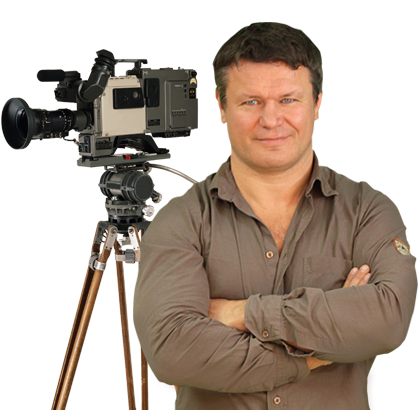




Il y a maintenant plus de 7 millions de traders dans notre équipe! Chaque jour nous travaillons à améliorer le trading. On s'efforce de vous offrir le meilleur et on obtient les plus beaux succès.
La confiance de millions de traders partout dans le monde est l'évaluation la plus élevée de notre travail!
Vous avez fait votre choix et nous allons faire de notre mieux pour répondre à vos attentes!
Ensemble, nous faisons une super équipe!
InstaSpot est fier de vous servir!







L'acteur, le champion de l'UFC et un vrai bogatyr russe! . Homme qui ne doit sa réussite qu'à lui-même. L'homme qui est sur la même route que nous suivons.
Le secret du succès de Taktarov est le progrès permanent vers la réalisation de son objectif.
Découvrez toutes les facettes de votre talent! Apprenez, essayez, commettez des erreurs, mais ne vous arrêtez pas!
InstaSpot - L'histoire de votre succès commence ici !


Jeremy Grantham got the market's attention with his "super bubble" call on US stocks. Now he wants to get an even more alarming and urgent message out, one his critics may find harder to accept.
In his latest interview, Jeremy Grantham says that the goldilocks period of the last 25 years is coming to an end and the world should prepare for a future amid inflation, slowing growth and labour shortages.
"There's only a certain amount of cheap oil, cheap nickel, cheap copper, and we are beginning to hit some of those boundaries," Grantham, co-founder of Boston asset manager GMO, said. "Climate change is coming with heavy floods, serious droughts and higher temperatures - none of these make farming easier. So, we're going to live in a world of bottlenecks and shortages and price spikes everywhere," he added.
Grantham, 83, insists that's all inevitable because, along with the scarcity of raw materials, baby boomers are retiring, birth rates are declining, emerging markets are maturing, and geopolitical tensions are flaring. All these trends decades in the making and almost unstoppable.
Notably, last week Grantham described what he considered to be only the fourth super bubble in US history, reiterated that a crash is imminent and advised exiting US stocks altogether. He predicted a fall of almost 50% in the S&P 500 and said that no amount of intervention by the Federal Reserve would prevent it.
His prediction was timely, preceding a volatile few days for the markets.
Grantham contends that the excesses and costs of the super bubble are symptomatic of humanity's tendency to live beyond its means. The demand for easy money that drove up asset prices and, in doing so, exacerbated inequality is now taking its toll in the form of economic stresses and societal fragmentation.
Similarly, the growth of the past century in pursuit of ever-higher standards of living left depleted soils, poisoned ecosystems and a changing climate, he said. That is why wildlife is disappearing, biodiversity is in jeopardy and human reproductivity is slowing.
"We have simply shot way beyond the long-term capacity of the planet to deal with us," Grantham, who operates a $1.5 billion foundation to protect the environment, said. "Nature is beginning to fail. And in the end, if we don't fix that, we begin to fail as well," he added.
Those views are likely to resonate with Grantham's fellow conservationists. His doubters are skeptical of his statements.
However, Grantham knows exactly what he is talking about. This year alone, the cost of agricultural products on the world market has broken all records. Combined with droughts and floods, the food issue is acute.
On the other hand, we are obviously dealing with a sufficient depletion of many readily available minerals, including oil, copper and other resources. It will become more expensive to mine new batches every year.
A few serious crises like the coronavirus will threaten the world economic system and then the political system. There is something in what he said.
For most of the past decade, Grantham has been skeptical of stock valuations and dismissive of the fervent enthusiasm that accompanied the bull market. After his latest crash call, one post on Twitter listed his sky-is-falling warnings to suggest he's wrong too often to be taken seriously.
His investment company has also been affected. For example, GMO, which manages around $65 billion, has not performed at its best in the market. According to Bloomberg, only one of firm's nine equity funds with a five-year track record has outperformed the MSCI World Index.
Since he first predicted a collapse in stocks a year ago, Grantham has been preparing for the worst. At the Grantham Foundation, which has venture-capital investments in everything from renewable energy to carbon capture, he shorted the Nasdaq Composite and Russell 2000 indexes as a hedge.
Personally, he invested in GMO's so-called equity dislocation strategy, a vehicle that also uses shorts to profit from a narrowing valuation gap between cheap and expensive stocks.
Short positions are not normally part of Grantham's scenario. He said he had targeted the Russell 2000 because it had a "high density of flaky companies that aren't making any money" and the Nasdaq because it too contained many unprofitable names.
According to Grantham, not selling is always an option. However, he pointed out, those who held through past crashes endured an agonizing wait to recoup their losses: 25 years in the case of the Dow Jones Industrial Average in 1929, almost 15 years for the Nasdaq Composite in 2000, and 5 1/2 years for the S&P 500 in 2007.
"If you think you can stand it for 10 or 20 or even 30 years, be my guest," Grantham said. "But history says a lot of you will not stand it."
What is important in his strategy? Historically, a year ago, long positions proved to be more profitable in many sectors. However, it may now be time to pay attention to Grentham's advice, and emphasise short and ultra-short transactions, as the market is too volatile.
InstaSpot analytical reviews will make you fully aware of market trends! Being an InstaSpot client, you are provided with a large number of free services for efficient trading.
